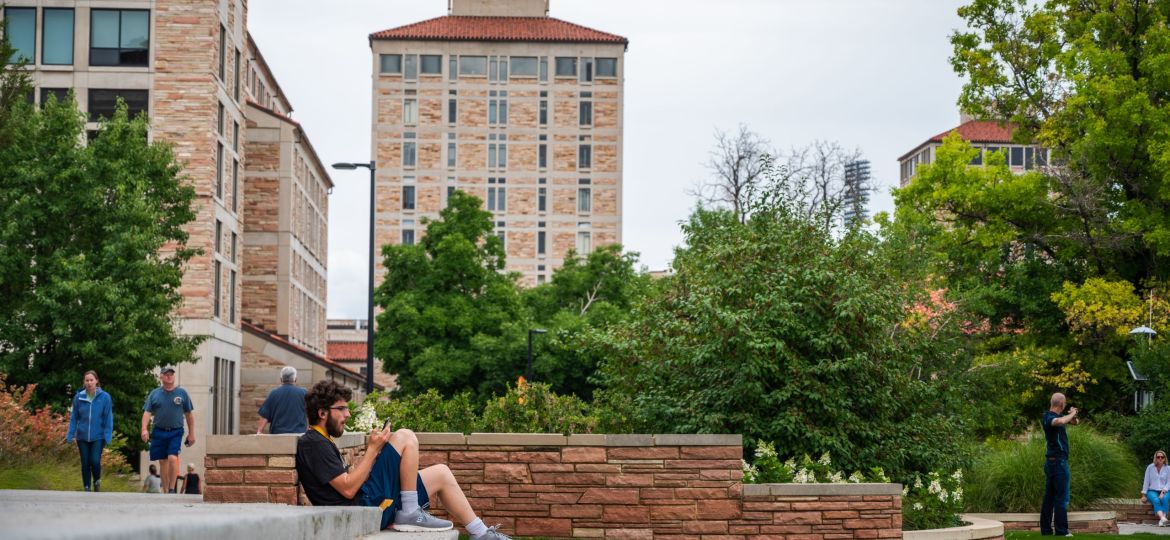
The Best Years of My Life? Christ, I Hope Not.
I remember my high school graduation party, wherein 10 adults told me I was about to enter “the best years of my life.” They reminisced about their college days and although it seemed to be an exercise they did more for themselves rather than me, I was still interested. They recounted late nights with their fraternity brothers, football games, relationships, parties and pretty much anything else you could find in the movie 22 Jumpstreet.
“Those really were the days” they would say with a sigh as they stared resentfully at their wife and children.
They would go on to discuss how they met their closest friends in a 100-person lecture hall or bumped into their future spouse walking on campus.
These are things that would never happen today– at least to me.
If someone were to approach me in a lecture hall for casual conversation, I would be so confused that I would slowly back away with my arms in the air, as if thwarting a bear attack.
And I would never speak to strangers on campus because, in my personal opinion, if you are walking on campus without headphones at full volume – you are a psychopath.
Obviously, I am being facetious (sort of), but it does seem like today’s college experience is… lonelier.
Time and time again, I have the same conversation with different people that boils down to one question — are these really the best years of our lives?
The data would say no.
The loneliness epidemic in the United States has not escaped young people.
73% of Americans ages 18-24 struggling with loneliness.
That is more than any other age group, including people over the age of 65. Experts attribute the anomaly to the isolating effects of constant access to technology and residual impacts from the COVID-19 pandemic.
These problems can intensify at a large school like CU, where it’s easy to feel lost in the swarm. I’ve found too many well-involved students who still feel disconnected from their peers due to the sheer size of CU.
And it doesn’t help that we walk around campus protected by our headphones and sit in classes where we won’t bother to learn anyone’s name. When the initial buzz of freshman year wears off, we aren’t receptive to new introductions and college becomes less exciting and more routine monotony. It was sophomore year when my real adult responsibilities set in – my student loans stopped feeling like free Monopoly money and things got stressful.
Yet, we expect college to be the opposite of this: a nonstop thrill ride of making the best memories and friends.
I thought these four years of my life would be like living in a 90s movie – a montage of football games, chatting in lecture halls and doing homework outside under large trees. Then, off to adulthood, where you saddle yourself with a 9-5 job. But at least you could look back at your college years fondly and say: “Man, those were the days.”
But what happens if these don’t feel like “the good ‘ol days?” And why don’t they feel like that? Shouldn’t each day feel that way, given the debt that many of us are in, partially because we want “the college experience?”
I can think of a few reasons for this disappointment. I entered college with impossible-to-meet expectations after being told repeatedly that I was entering my “glory days,” so of course I was let down after the initial excitement of college fizzled out. This – in combination with constant access to isolating technology and the residual impacts of the pandemic – led to the anxiety that I was “doing college wrong” or “missing out.” On top of that, I felt immense guilt over being disappointed with such a privileged experience, which made it impossible to escape the anxiety loop.
So how do we grapple with this? The most obvious solution to most is that as we get closer to “real adulthood,” we have to make more genuine efforts to reach out to each other. After years of socialization being programmed into our lives through high school classes and dorm living, it’s now on us to make the effort to connect with others. And that includes making efforts with strangers in our day-to-day lives, even if it feels uncomfortable.
However, what’s helped me the most after feeling the anxiety that I’m not “doing college correctly” was realizing this – college doesn’t have to be anything. It doesn’t have to be where you find yourself, or where you meet your best friends, and it certainly doesn’t have to be the best years of your life.
When we hear something enough, we start to take it as fact. But I think college serves whatever purpose it’s supposed to for each individual. For me, I think college has hardened my emotional resilience and made me question what I want out of my life, while not necessarily providing all the answers. However, that doesn’t make it any less valuable than the person who came to CU, had the time of their life, met their spouse (and their maid of honor) and then left with their dream job.
If nothing else, I hope this column illustrates that the pressure we feel to make these “the best years of our lives” is pointless. This notion infers that the years following college would all be downhill – a downright depressing perspective I refuse to accept. I think that if we remove this unnecessary pressure and keep trudging the path, it’s probable that the best is yet to come. So, are these the best years of our lives? I’d bet not, and I think we are all better off for it.

